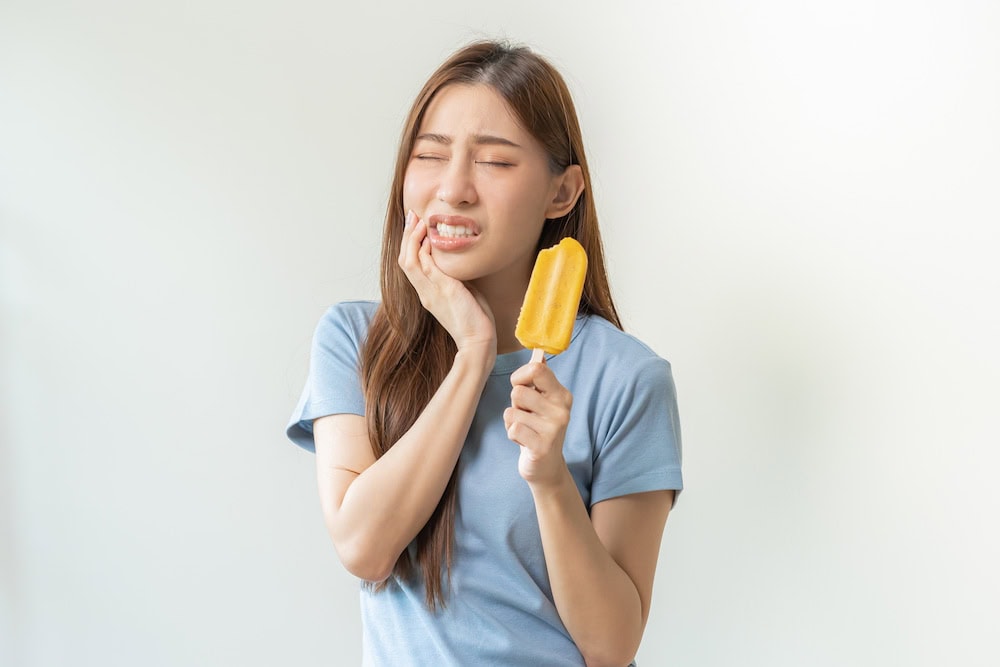
What is Tooth Sensitivity?
Most of us have experienced tooth sensitivity at some point. It’s that sudden jabbing pain you feel when you drink hot or cold liquids or when you inhale and your teeth are suddenly exposed to air. Tooth sensitivity can feel like an electric shock that you experience many times during your day, making your life miserable. Causes of Tooth Sensitivity Tooth sensitivity generally means that some surface areas of your teeth aren’t protecting the roots of your teeth. The roots carry nerves that can be triggered by air or hot and cold sensations and deliver a jolt of pain. Causes can include: Enamel erosion Gum disease and recession Dental procedures Tooth decay Diet Aggressive brushing Acidic food and drinks Tooth whitening procedures Tooth grinding As we age, the enamel in our teeth can start to erode, our gums may begin to recede, and we may notice this pain happening more frequently. Treatment Options for Tooth Sensitivity There are many home remedies that can alleviate the pain of sensitive teeth. However, these treatments only treat the pain itself and not the cause. For permanent relief of recurring tooth sensitivity, make an appointment at a dental clinic in Bangkok. Natural Remedies To practice proactive tooth care, you should only be using a fluoridated toothpaste. Some of the natural remedies recommended by dentists are simple and quick, and they may offer the relief you need without you having to go any further. Rinsing your mouth with saltwater immediately after meals helps reduce gum inflammation and can relieve tooth sensitivity. Sesame or coconut oil can also provide temporary relief to sensitive teeth. Try to avoid acidic food and drinks in your diet. Desensitizing Toothpaste Desensitizing toothpaste helps ease pain by using active ingredients to either block nerve responses or strengthen the enamel covering the

